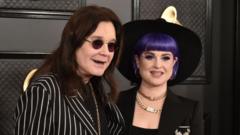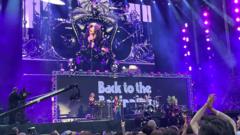Pope Francis, the leader of the Roman Catholic Church, has died suddenly at the age of 88, just a day after Easter Sunday, following a brief recovery period from pneumonia.
Pope Francis Passes Away After Brief Appearances Post-Hospitalization

Pope Francis Passes Away After Brief Appearances Post-Hospitalization
Unexpected Passing of the Pope Just Days After Easter Celebrations
On April 21, 2025, Pope Francis was confirmed dead at 7:35 a.m. He had recently made headlines after being released from a Rome hospital where he was treated for a severe pneumonia that had raised concerns about his health. His release was celebrated by many as a sign of recovery, but it soon became clear that the pontiff's health was still fragile.
During a hospitalization that lasted 38 days, Francis faced critical respiratory episodes, with doctors cautioning him to avoid strain. However, in an unexpected turn, the pope made several public appearances, suggesting a desire to connect with his flock one last time. Just days before his passing, he surprised many by attending Easter services and even blessing crowds, exhibiting his characteristic determination even as his health declined.
Notably, on Easter Sunday, he met with Vice President JD Vance at his residence and addressed the public from the balcony of St. Peter’s Basilica, delivering a powerful Easter message that emphasized peace, inclusion, and protection for vulnerable communities. As he made his final public address, he called for compassion towards migrants and a united effort for global disarmament, issues that had been central to his mission throughout his papacy.
The news of Pope Francis's passing has generated an outpouring of grief and reflection from Catholic communities around the world, alongside discussions of his impactful, albeit tumultuous, tenure that spanned over a decade. As tributes continue to emerge, the Vatican faces the task of mourning a beloved leader while preparing for the transition to a new papacy.
Jason Horowitz, the Rome bureau chief for The Times, reports this significant moment in history, underlining the pope’s enduring legacy and the profound impact of his final days.
During a hospitalization that lasted 38 days, Francis faced critical respiratory episodes, with doctors cautioning him to avoid strain. However, in an unexpected turn, the pope made several public appearances, suggesting a desire to connect with his flock one last time. Just days before his passing, he surprised many by attending Easter services and even blessing crowds, exhibiting his characteristic determination even as his health declined.
Notably, on Easter Sunday, he met with Vice President JD Vance at his residence and addressed the public from the balcony of St. Peter’s Basilica, delivering a powerful Easter message that emphasized peace, inclusion, and protection for vulnerable communities. As he made his final public address, he called for compassion towards migrants and a united effort for global disarmament, issues that had been central to his mission throughout his papacy.
The news of Pope Francis's passing has generated an outpouring of grief and reflection from Catholic communities around the world, alongside discussions of his impactful, albeit tumultuous, tenure that spanned over a decade. As tributes continue to emerge, the Vatican faces the task of mourning a beloved leader while preparing for the transition to a new papacy.
Jason Horowitz, the Rome bureau chief for The Times, reports this significant moment in history, underlining the pope’s enduring legacy and the profound impact of his final days.


















